Nobody likes to talk about internal controls, and that is understandable considering they are about as enjoyable as a root canal. However, this is one of those items that ALL nonprofits need to address.
According to data from a recent AICPA Peer Review Program Study, 40 percent of all major issues that arise in nonprofits are due to lack of internal controls. This reality makes internal controls a vital piece of long-term management development.
For those wondering, internal control is a set of processes designed, implemented and maintained to address identified risks that threaten the viability of an organization’s objectives. These objectives concern reliability of financial reporting, effectiveness and efficiency of operations, and compliance with laws and regulations.
And as much as anyone would like a fool-proof security mechanism, they simply to exist. Any process can go sideways where human beings are involved, including internal controls. So be sure they are reviewed and updated on a regular basis so they best fit your organizational approach.
Even the smallest of organizations have internal controls of one form or another. You simply may not realize it from your vantage point. But you do to some extent, and they should be reviewed and implemented in the following areas:
- Consistent Management Review – A strong consistent review of all processes from management is one of the primary components for success. This expectation if not part of the leadership mentality will not happen now the chain.
- Process Communication – A strong communication ethic around the importance of internal controls as a normal part of communication activity.
- Normal Monthly Account Reconciliation
- Regular review of financial results by executive leadership.
- Appropriate limits on check signing and access to cash and inventory
- Payroll regularly reviewed by leadership.
- Invoices appropriately marked “PAID” to avoid double payment.
Additionally for churches:
- Specific processes for offering counts and deposits
- Asset checkout logging (vehicles, music equipment, etc.)
- WiFi connectivity and monitoring
Understanding and communicating the importance of effective internal controls sound like a heavy hand, but in reality, it comes down to one thing – stewardship.



